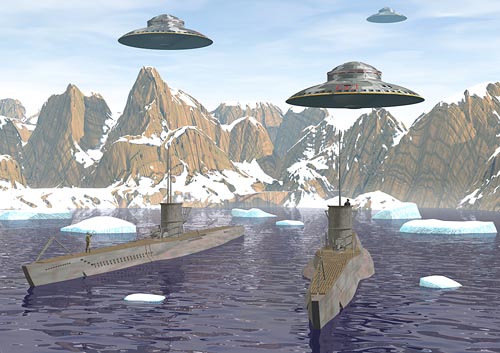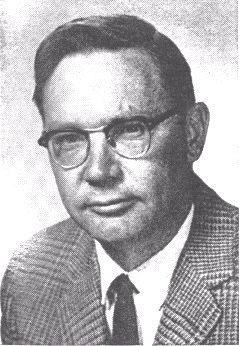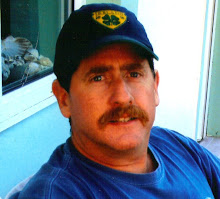
By David Kearns
(WHY CAN'T WE WRITE ABOUT IT!)
The great part about being a slightly whack writer is you get to call some things for what they are. Namely, the conspiracies in our lives.
Months ago I was fighting to get a UFO trilogy published. I spoke via email with one published author who cautioned me that publishing houses don’t want to touch UFO books, even in novel form because “they have all sort of agreed, UFO’s don’t represent anything extraterrestrial.”
No one will touch the subject in novel form because, there’s nothing supernatural about it? The new yardstick apparently for science (emphasis here) FICTION? Does this go for “ghosts,” Bigfoot, Skunk Ape, Werewolves as well?
Does this make sense? We have scifi novels about vampires? You can’t swing a dead cat without hitting those down at the B and N. Are they saying “well, yeah, vampires okay, but UFOs? No. “
Are vampires real?
“No…”
Then, why?
“Well, it’s just because you see…”
The U.S. intelligencia is under barrage recently for disclosure about this UFO phenomenon. I’ve said before that in the absence of information the human mind will extrapolate.
But our illustrious publishers have decided, for some inane reason, that UFOs are not a subject worthy of speculation, even in FICTION. They have decided this in a dismal book market, despite evidence all over Amazon.com that even the standard tome which list-wise documents the phenomenon, DOES in fact sell, and if you push these enough, they will sell quite nicely.
So why not UFO fiction?
(Crickets chirping, the bells from a far off cathedral. Leaves rustling)
So, we pass up a market that is out there, living and breathing, while your publishing houses are going down in flames? Smells like conspiracy to me.
(Executives clearing their throats. Papers rumpling, editor adjusts glasses…)
Are you independent editors, or have you been braced by our government to keep mum?
The armed forces have become so knee jerk in their lies, they have even issued the same doltish reports covering sightings of our own aircraft seen chasing these UFOs, whatever the latter may represent.
In Stephenville in late 2007, military officials first explained away two F-16 Tom Cat fighters as they pursued some damned thing, whatever it was, and it was moving pretty damned fast and looked nothing like conventional aircraft. The officials stated that our own, easily recognizable Tom
 Cats were in fact reflections off two jet liners at cruising altitude which, for some bizarre reason of refractive atmospheric pseudo-physics, presented themselves to the witnesses as F-16s less than 1,500 feet off the ground. No explanation as to how mirages also shook window panes of the houses near where they … miraged.
Cats were in fact reflections off two jet liners at cruising altitude which, for some bizarre reason of refractive atmospheric pseudo-physics, presented themselves to the witnesses as F-16s less than 1,500 feet off the ground. No explanation as to how mirages also shook window panes of the houses near where they … miraged.They later retracted this beef and admitted six Tom Cats were for some reason defying FAA regulations in a training exercise of some sort scant meters above the tree-line.
How long will this go on?When will Big Brother at least permit honest, shit-nuts-crazy fiction writers to at least speculate what these things may be through pages of good ole fashioned science fiction novels again?
I’m sorry but I really dig those old flying saucer stories from the 1960s; the movies that scared the crap out of everybody. Am I alone?
“No, you MAY publish about aliens, so long as you’re writing an approved script for Hollywood’s MIB series.( A silly, thoroughly enjoyable venue, nonetheless.) Or so long as you are working on the next version of Independence Day in script form, or if you wrote District 9.”
Why can’t someone, namely me, publish a series of novels about UFOs the way our buddy Steven King would? Why can’t there be a Twilight series covering a group of kids who discover aliens?
“Well it’s just not done, you see… Just bad form and we don’t like you for suggesting it.”
Okay, and I hear you, and…and…I accept that I can be a pain in the ass, but, take me out of the equation and answer the damned question, WHY?! Do you even HAVE AN ANSWER? Or is it just because someone might FIRE you for even suggesting it?
I have been told in no uncertain terms that the latter is the case. Mention it at an editorial meeting and you’re out. Bigfoot? Okay! More bloodsuckers? Hell yes, bring us more of that!
This nonsense in mind, and frankly having completed my first in a series of novels, and no where to put it but in the dust bin, or on the internet, I have chosen the latter.
I began the book Monster Hole in the summer of 2005 after completing my non-fiction Where Hell Freezes Over. While writing the non-fiction and investigating Antarctica I ran smack dab into the UFO phenomenon in all its wild craziness on the web.
Curious, and suffering from delusions no doubt, I began to peel away at this onion, sieving fact from fiction, and I decided, hell yes, this would make a fine novel or two or even three.
Monster Hole is the beginning book in The Big Lie series. In 1981, a group of surfers from Melbourne Beach Florida were confronted with the inexplicable. Like Stephen King’s IT, they come back home, to Mel Beach, following the death of their informal leader, Ryan Cogswell, who now, at 43 and suffering from mania brought on by his contact with whomever, has apparently killed himself.
The story is told first person narrative through his best friend Tim Stanton. Stanton relates the story as it unfolds in quasi-diary form, through dreams visions and flashbacks and conversations with his pals at the wake and the funeral. All remember events differently.
Ryan had been up to some pretty crazy shit as well; coating the inside of his old bedroom with aluminum foil which hides, double hides and triple hides, secrets to something he had been working on for the military.
Enter the MIBs, real ones, scary mean spirited; intent on squashing the secrets.
Complicating the story is the fact the adult version of Ryan Cogswell, had been a computer engineer working on super secret projects for military contractor Camerdyne Systems Inc.
Go ahead and read it. I am working on book two, and so you can have Book 1 for your enjoyment now; not for republication or profit but for damned enjoyment. (Book 2 is simply awesome as well)
I do this because the publishing cycle will likely pass me by on the first novel, which is set in the year 2011.
I have made reading easy on your eyes by including a nice sea blue background behind white type.



 Jamming, disinformation, and this sort of thing are part of modern warfare components. I have no proof whatsoever that such tactics were used on me. I do have he very shit's trail of dead computers and a lot of questions. (A more standard image of Operation Highjump, right)
Jamming, disinformation, and this sort of thing are part of modern warfare components. I have no proof whatsoever that such tactics were used on me. I do have he very shit's trail of dead computers and a lot of questions. (A more standard image of Operation Highjump, right)

